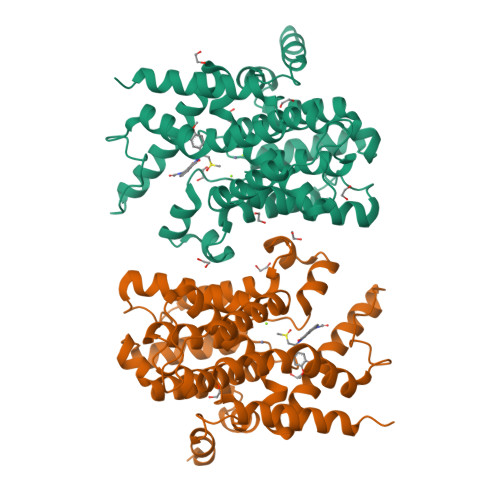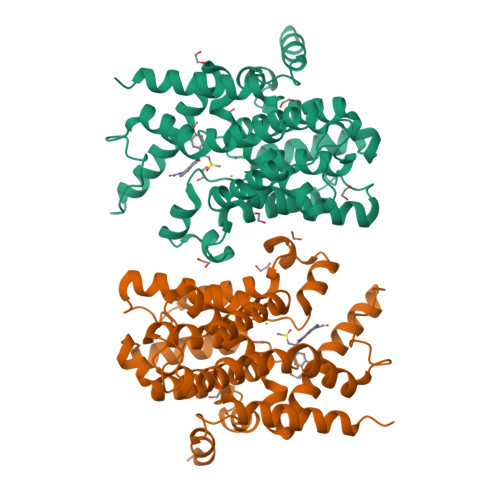Design, synthesis, and biological evaluation of tetrahydroisoquinolines derivatives as novel, selective PDE4 inhibitors for antipsoriasis treatment.
Zhang, R., Li, H., Zhang, X., Li, J., Su, H., Lu, Q., Dong, G., Dou, H., Fan, C., Gu, Z., Mu, Q., Tang, W., Xu, Y., Liu, H.(2021) Eur J Med Chem 211: 113004-113004
- PubMed: 33218684
- DOI: https://doi.org/10.1016/j.ejmech.2020.113004
- Primary Citation of Related Structures:
7CBJ, 7CBQ - PubMed Abstract:
Psoriasis is a kind of chronic inflammatory skin disorder, while the long-term use of conventional therapies for this disease are limited by severe adverse effects. Novel small molecules associated with new therapeutic mechanisms are greatly needed. It is known that phosphodiesterase 4 (PDE4) plays a central role in regulating inflammatory responses through hydrolyzing intracellular cyclic adenosine monophosphate (cAMP), making PDE4 to be an important target for the treatment of inflammatory diseases (e.g. psoriasis). In our previous work, we identified a series of novel PDE4 inhibitors with a tetrahydroisoquinoline scaffold through structure-based drug design, among which compound 1 showed moderate inhibition activity against PDE4. In this study, a series of novel tetrahydroisoquinoline derivatives were developed based on the crystal structure of PDE4D in complex with compound 1. Anti-inflammatory effects of these compounds were evaluated, and compound 36, with high safety, permeability and selectivity, exhibited significant inhibitory potency against the enzymatic activity of PDE4D and the TNF-α release from the LPS-stimulated RAW 264.7 and hPBMCs. Moreover, an in vivo study demonstrated that a topical administration of 36 achieved more significant efficacy than calcipotriol to improve the features of psoriasis-like skin inflammation. Overall, our study provides a basis for further development of tetrahydroisoquinoline-based PDE4 inhibitors against psoriasis.
Organizational Affiliation:
State Key Laboratory of Drug Research and CAS Key Laboratory of Receptor Research, Shanghai Institute of Materia Medica, Chinese Academy of Sciences, 555 Zu Chong Zhi Road, Shanghai, 201203, China; University of Chinese Academy of Sciences, No.19A Yuquan Road, Beijing, 100049, China.




















